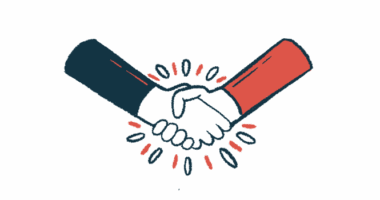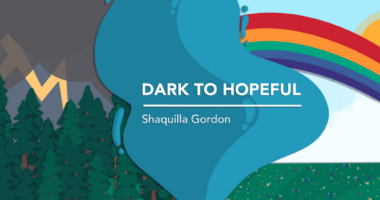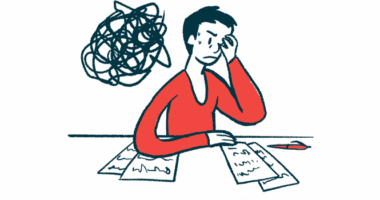Your guide for building support when PNH fatigue exhausts you
Last updated Aug. 1, 2025, by Brad Dell
It’s understandable that people in your life might not realize that fatigue from paroxysmal nocturnal hemoglobinuria (PNH) is not mere tiredness. But even if they do understand, they still may not know how to best help you when fatigue strikes.
But by raising awareness about PNH fatigue and how to be more supported, you can better protect both your physical and emotional energy.
Make PNH fatigue visible
When people can’t see PNH fatigue’s underlying causes, assumptions may be made about what’s going on with you. And it’s likely that what they think will be partly or completely incorrect.
One way to handle misconceptions or judgment is to proactively counter with awareness and understanding.
Here are some ways to gently educate others about the severity of your fatigue and its causes.
Guide empathy through comparison
To help a person empathize with fatigue’s impact on your life, engage their imagination by comparing your fatigue to something that isn’t exclusive to the experience of people with PNH.
For example, you might suggest they recall a time when they were very sick, like with a virus, and exhaustion prevented them from doing what they wanted. Or, you could encourage them to remember how they felt during a physically intensive day after a sleepless night.
Once they’ve had time to relive that experience, explain how it compares to or is different from what you are dealing with.
Share a visual example
Many in the chronic disease community have adopted lupus blogger Christine Miserandino’s spoon theory, a visual illustration of how diseases can limit energy.
In her story, Miserandino handed a friend 12 spoons that symbolized her daily energy expenditure. For her, each activity takes a spoon or more, depending on the difficulty. In contrast, she told her friend, a healthy person wakes up with the expectation of an unlimited number of spoons.
Miserandino’s friend quickly realized just how difficult it is to budget for energy when one has an extremely limited number of spoons.
Describe the underlying causes of fatigue
You might talk about some or all of the various physiological and psychological burdens that compound to drive your fatigue.
Describing these problems helps a person understand that PNH fatigue isn’t solved by getting a good night’s sleep or making other quick lifestyle changes.
- Anemia can cause weakness, breathing troubles, and an overwhelming feeling of exhaustion.
- Chronic inflammation strains the body.
- Complications like blood clots can damage energy-providing organs.
- Treatments can cause side effects, including drowsiness or insomnia.
- Pain or other physical symptoms can disrupt getting restorative rest.
- Mental health struggles related to PNH can deplete energy.
- Brain fog can require using extra energy for tasks involving thinking.
Make people aware of your energy needs
While education helps people better understand why you need support, practical guidance helps them understand what type of support is needed.
Practicing the following tips can help you to articulate your needs with sensitivity and practicality.
Be specific about your needs
Be straightforward and clear about your needs. For example, instead of implying to a loved one that you’d like a ride to an appointment by saying you’re too tired to go, you might say, “Would you mind driving me to the appointment so I can rest in the car?”
Another way to practice specificity is to help others brainstorm activity modifications that make tasks or events doable. You might respond to invitations or requests with something like, “I do want to go for a walk, but could we do a shorter loop today?” Or, “I’d love to help you with that, but I will have to take a break every few minutes.”
Create communication systems
Setting up communication routines with loved ones and those in your daily life can relieve the burden on you of always being the one to initiate discussions about energy needs.
You could create a check-in system where someone asks you about your current energy challenges and how they can help. Or, if you have a regular meetup with someone, they might be able to send you a text asking, “Energy level today?” whenever you have plans together.
You can also set expectations for how you best communicate when you’re fatigued. You might let others know that you often don’t take calls because of your exhaustion, so it’s better when they text you.
You could also decide on a hand signal or code word that cues others in that you’re tired and need to rest or leave soon.
Provide assurance
If you’re concerned that rejecting a request or invitation because of your fatigue might offend a person, consider:
- Stating your energy levels before requests are made: “I have about one hour of good energy left today, so I need to prioritize what I use it for.”
- Reassuring them that your no is not personal: “It’s not that I don’t want to spend time with you, but rather my body needs rest right now.”
- Framing needs around your desire to participate in life with help from them: “I want to do this, but in order to have the energy for it, I need …”
By being educational, practical, and sensitive in your discussions about fatigue, you can lighten your burden while giving yourself a stronger and more empathetic support system.
PNH News is strictly a news and information website about the disease. It does not provide medical advice, diagnosis, or treatment. This content is not intended to be a substitute for professional medical advice, diagnosis, or treatment. Always seek the advice of your physician or other qualified health provider with any questions you may have regarding a medical condition. Never disregard professional medical advice or delay in seeking it because of something you have read on this website.
Recent Posts
- Novartis, Atropos to use AI to find undiagnosed PNH patients
- To the newly diagnosed: Welcome to the club no one asks to join
- PNH combination therapy safe, allows less frequent dosing: Study
- Money, logistics add to treatment burden for PNH patients in Japan
- I’m wiser today about processing the emotional roller coaster of PNH
Related articles
-
August 25, 2025 by Steve Bryson PhD
Novartis, Atropos to use AI to find undiagnosed PNH patients
-
August 19, 2025 by Shaquilla Gordon
To the newly diagnosed: Welcome to the club no one asks to join
-
August 4, 2025 by Marisa Wexler MS
Most PNH patients on Empaveli avoid blood transfusions





